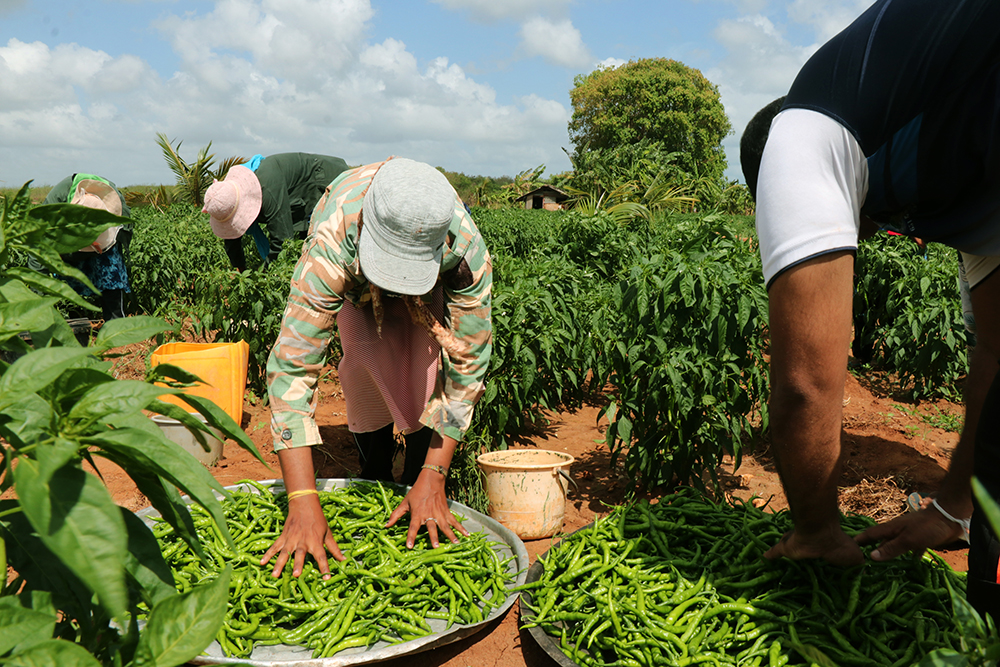Photo of army-seized agricultural land in Jaffna
Reporting on Sri Lanka's ban on chemical fertilisers, the Economist highlights the dire economic straits the country finds itself in with inflation near 6% and food prices rise more than 11%.
Whilst the Rajapaksa regime had initially planned to implement the transition to organic fertilisers over a ten year period, the announcement of a sudden total ban caught many farmers off guard.
Sri Lanka's Planter's Association predicts a massive fall in tea production and export revenue of around 25% across the next six months and thereafter nearly a half. Sri Lanka's economy is heavily dependent on tea, exporting $1.24 billion last year or 1.5% of its GDP. Sri Lanka stands as the world's fourth-largest tea exporter.
Over 90% of Sri Lankan farmers are reliant upon chemical fertilisers and as a result of the ban 85% expect crop losses in the coming season, Verite Research, a Colombo-based think tank reported.
The Economist further notes that with foreign reserves in Sri Lanka at only $2.6 billion (valued for six weeks of imports); the country must pay $7 billion between now and July to service its foreign debts. With Sri Lanka's credit rating falling even further, borrowing "in global capital markets is all but impossible".
Commenting on the possibility of an IMF restructuring programme, the Economist warns that the government is unlikely "hard to accept conditions that undermine the country’s much-vaunted sovereignty" and would further lose the confidence of its voters.
Read the full piece here.

